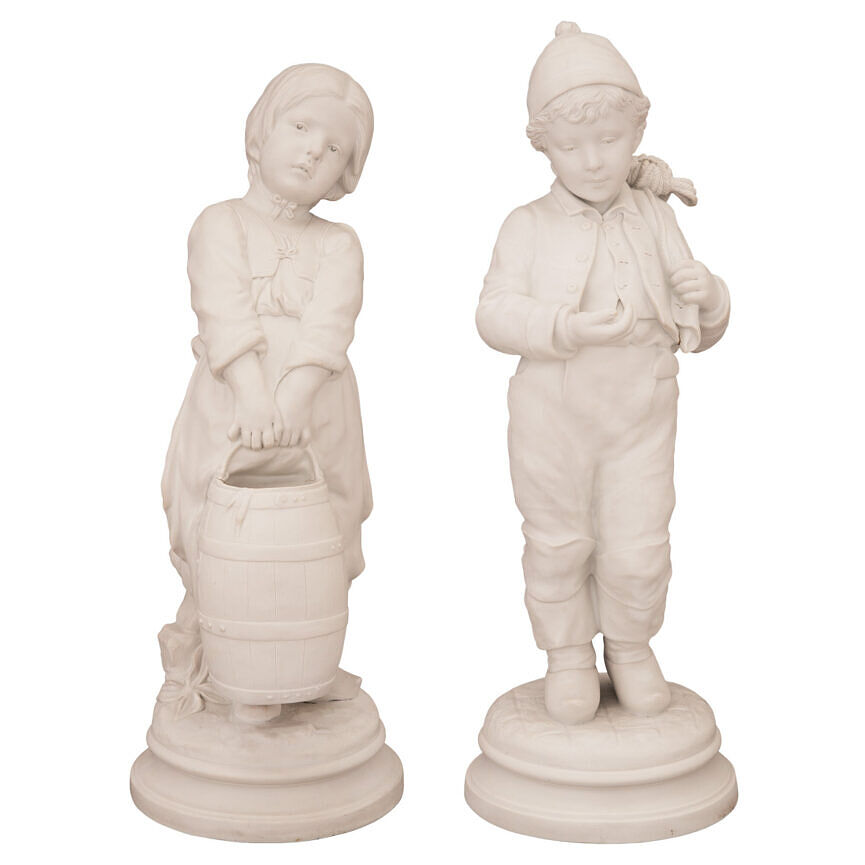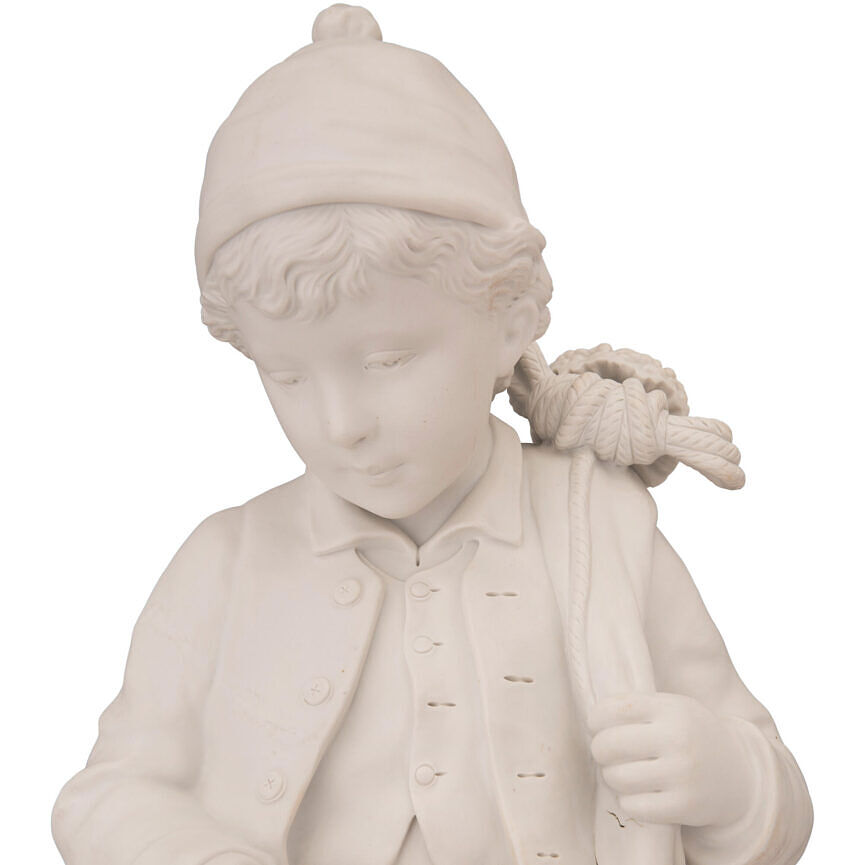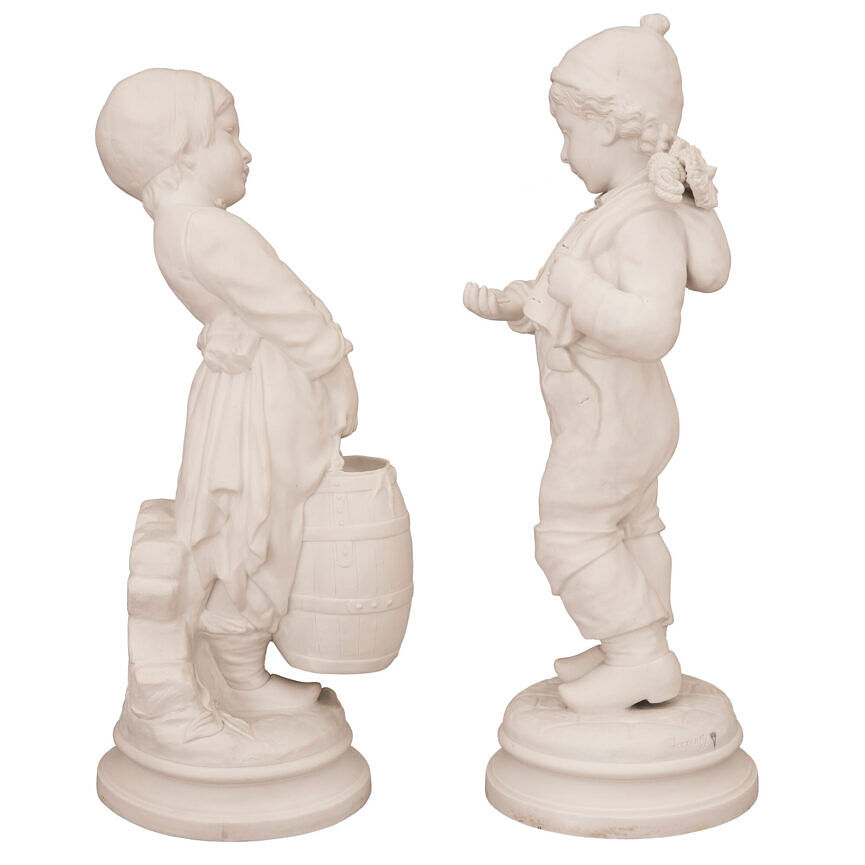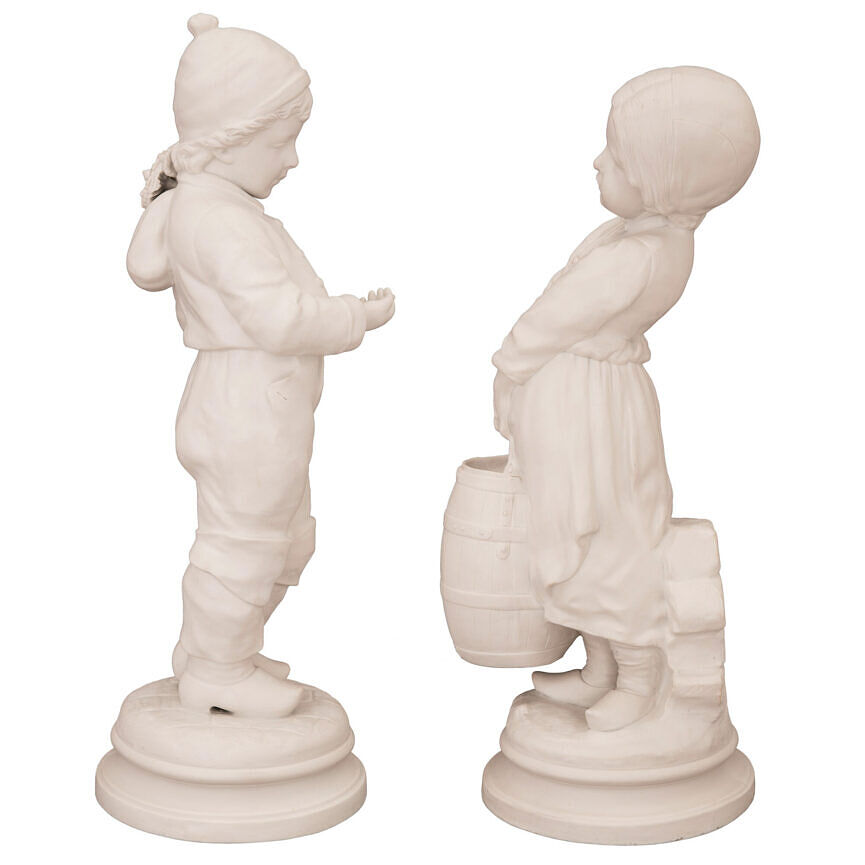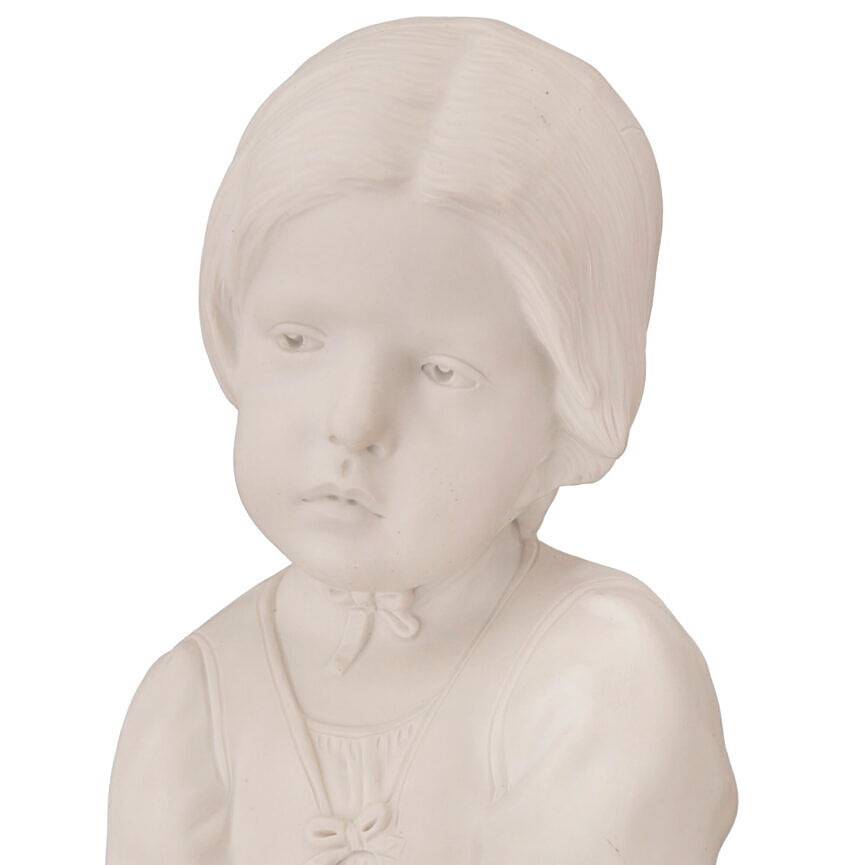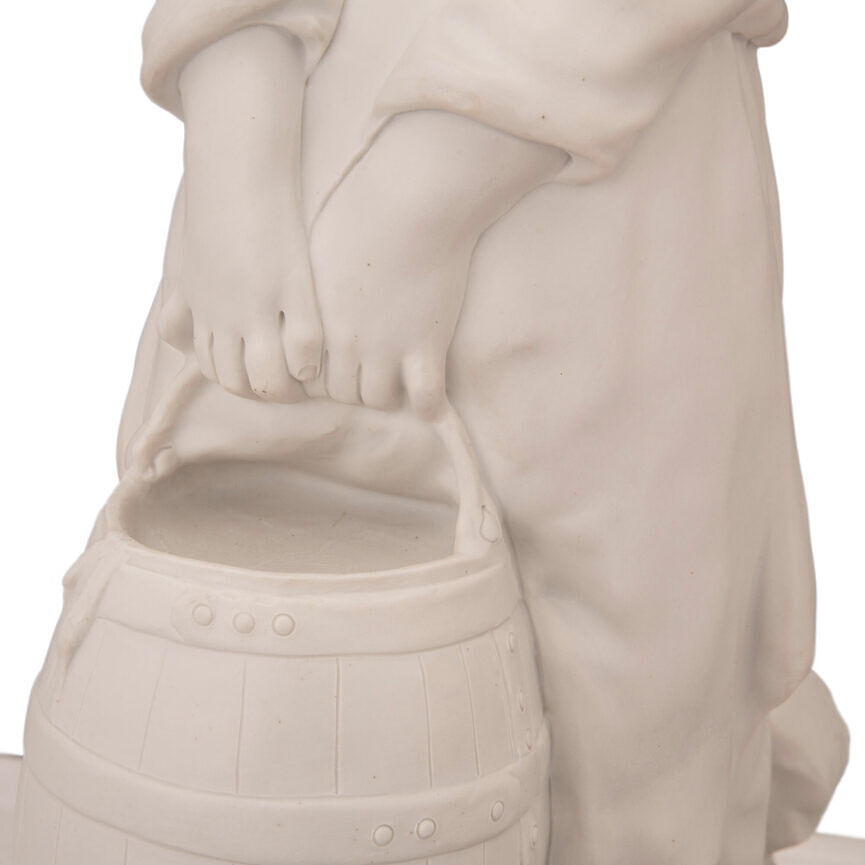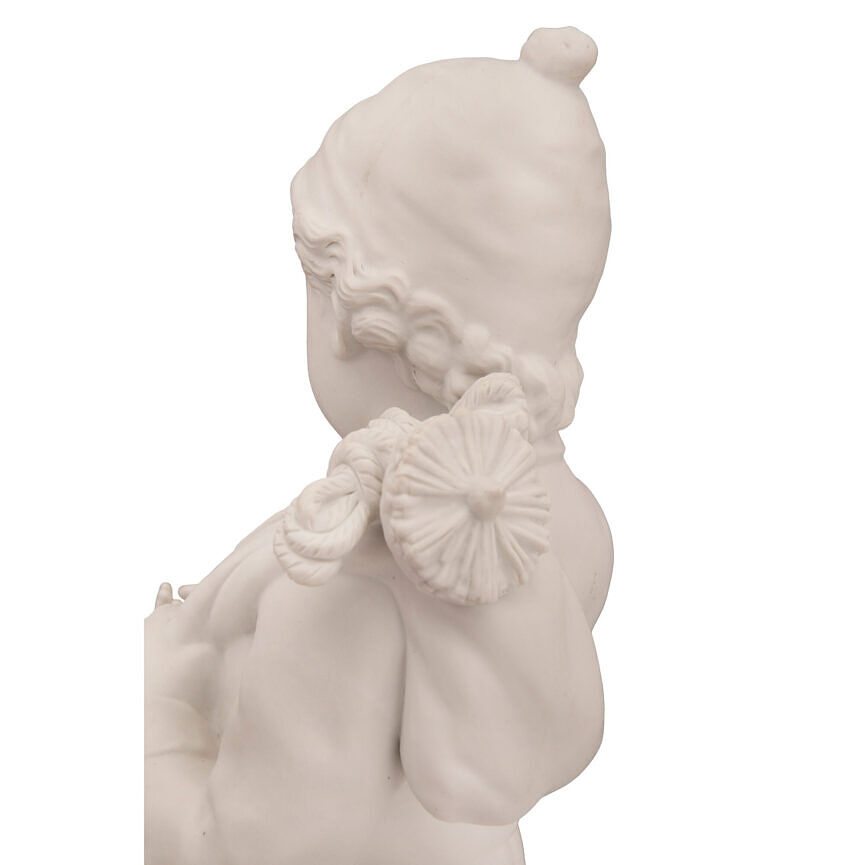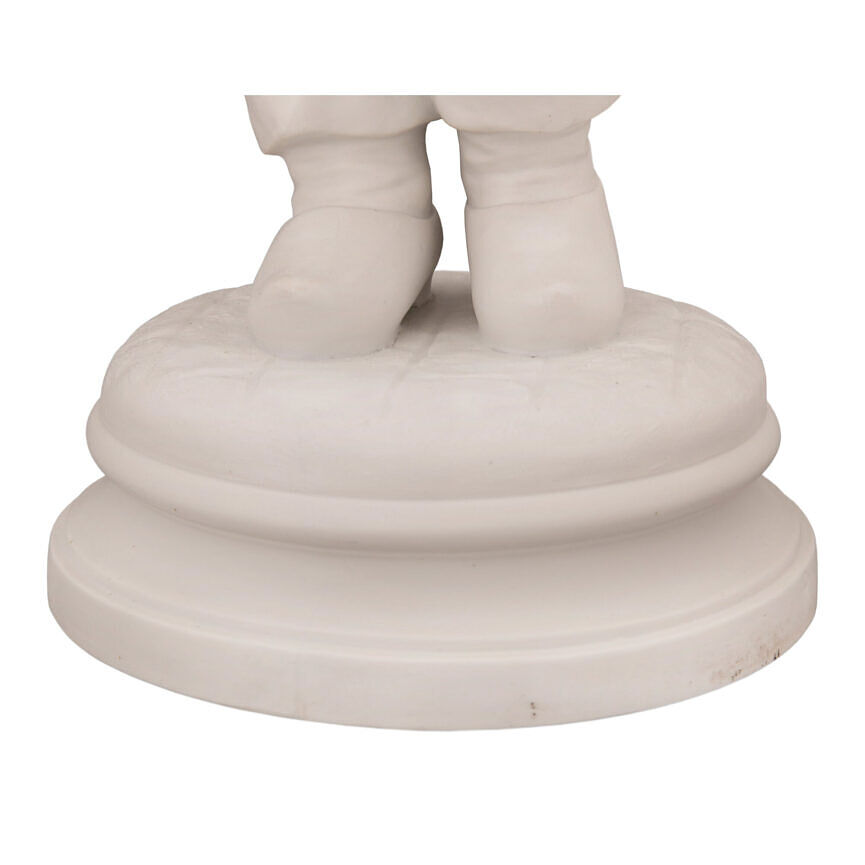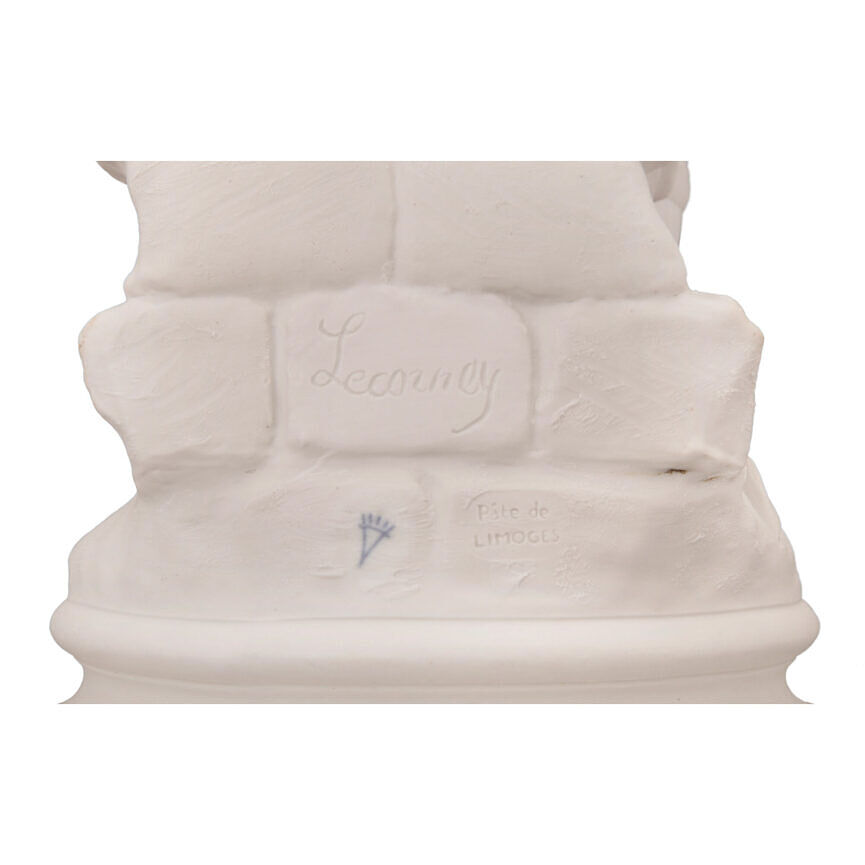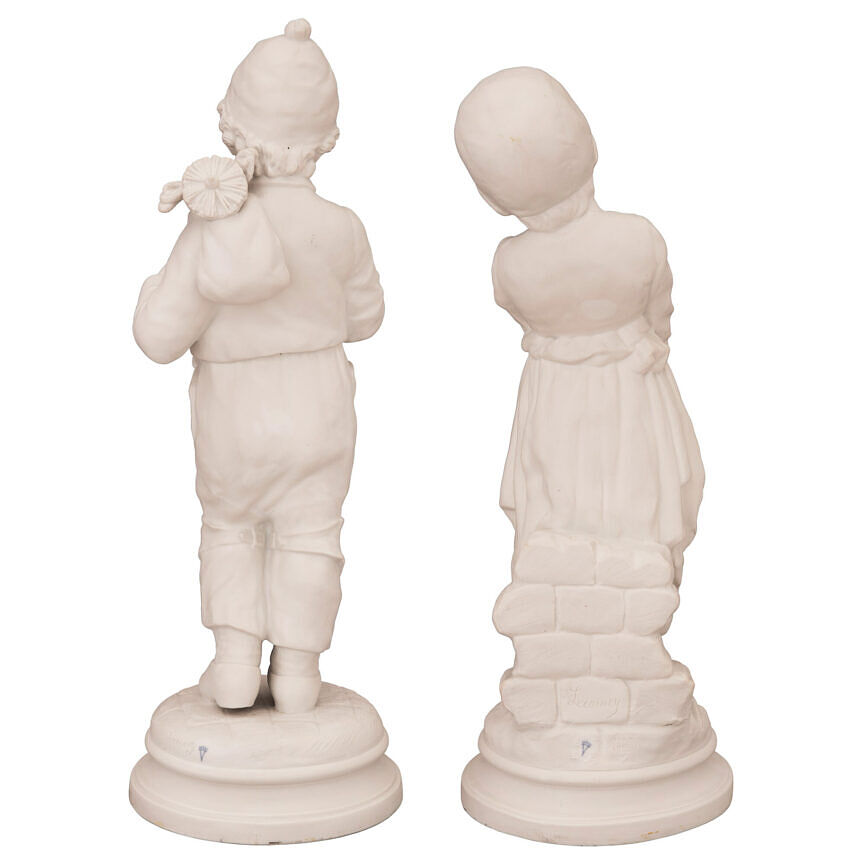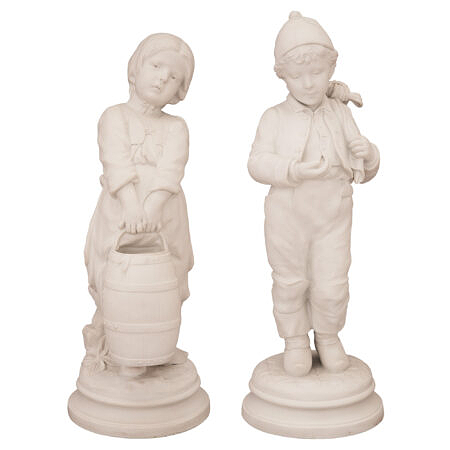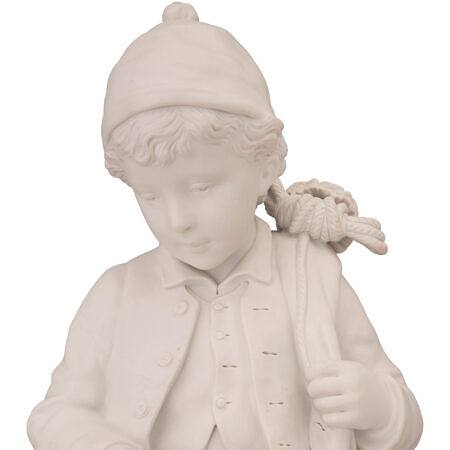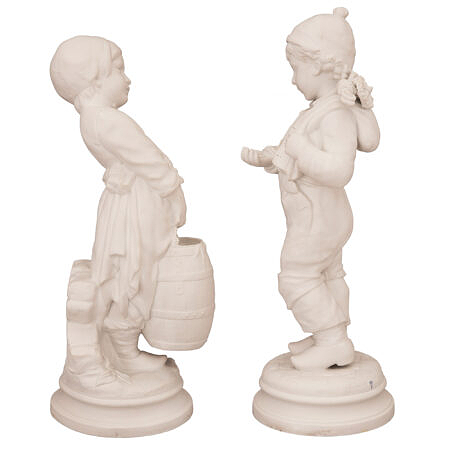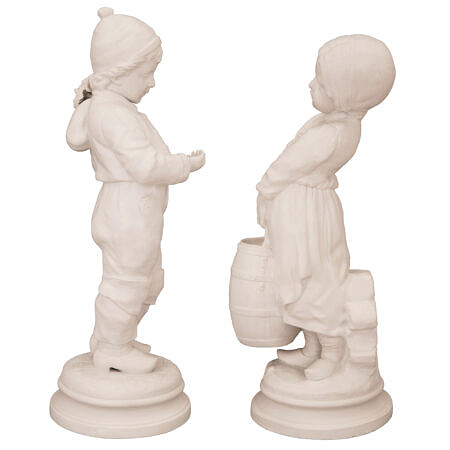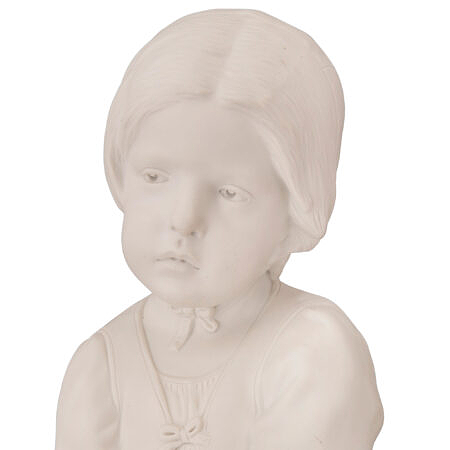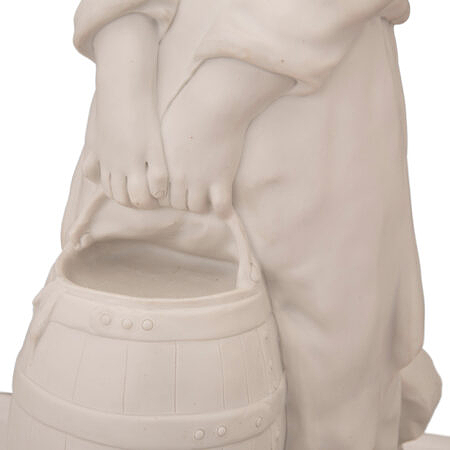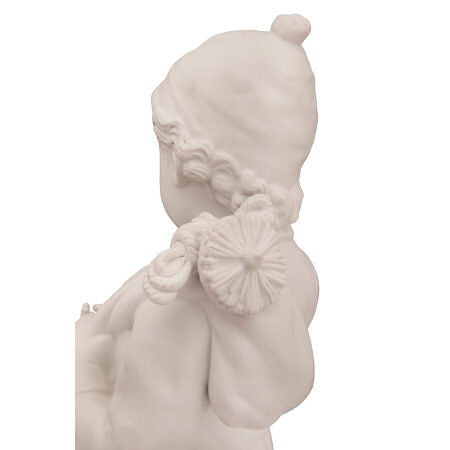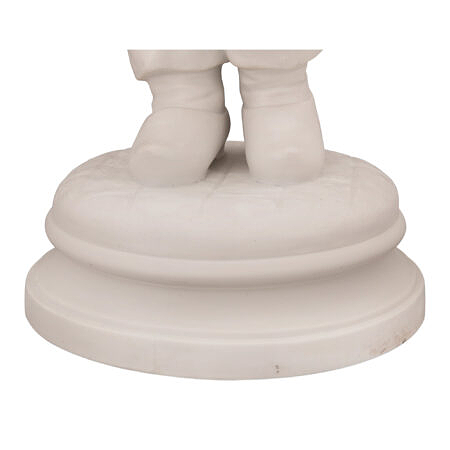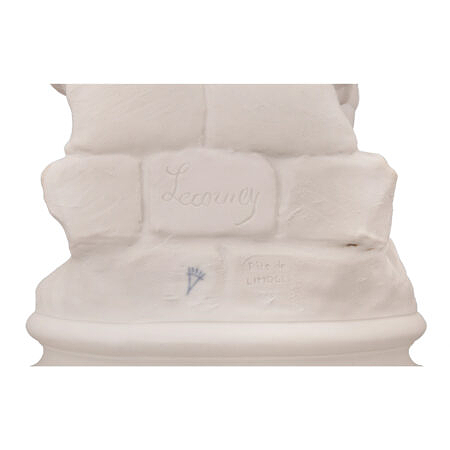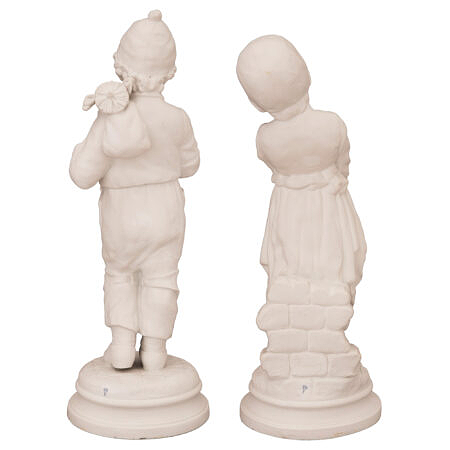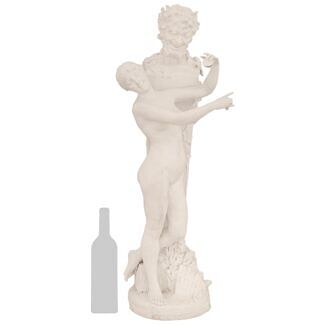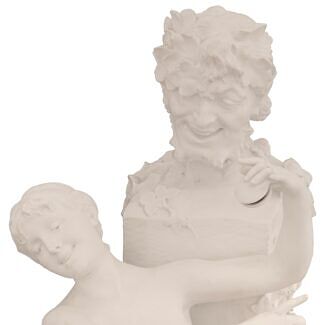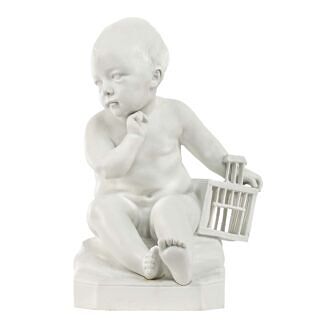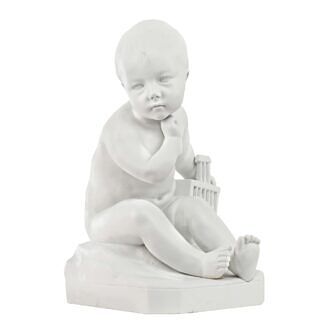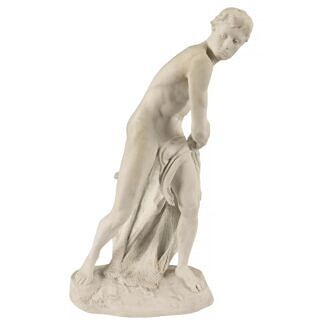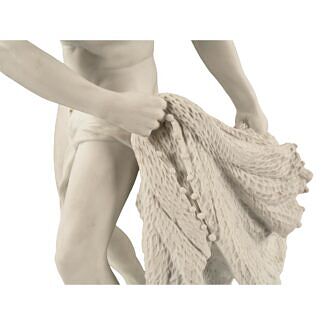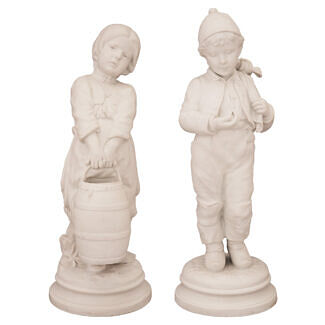A pair of French 19th century Louis XVI st. Biscuit de Sèvres porcelain statues of a boy and a girl
List: $3,900.00
An incredibly charming pair of French 19th century Louis XVI st. Biscuit de Sèvres porcelain statues of a boy and a girl. Each statue is raised by an elegant circular mottled base with a fine ground design. To the left... — Read More
An incredibly charming pair of French 19th century Louis XVI st. Biscuit de Sèvres porcelain statues of a boy and a girl. Each statue is raised by an elegant circular mottled base with a fine ground design. To the left is a beautiful young girl dressing in lovely period attire wearing a bonnet and carrying a water barrel. To the right is a charming young boy with his tied bag thrown over his shoulder. He wears a wonderfully executed waist cost and hat and is holding out his right hand. — Read Less
- Item # 11272
-
H: 19.25 in L: 7.25 in D: 8.75 in
H: 49 cm L: 18 cm D: 22 cm
- France
- 19th Century
- Porcelain
- Louis XVI st. Read More
- Sèvres Read More
It was founded through the support of King Louis XV of France and at the initiative of Madame Pompadour to be located near her Château.
Due to Sèvres’ reputation for excellence and prestige, it has always attracted some of the best artists throughout history; François Boucher, Albert-Ernest Carrier-Belleuse, Étienne Maurice Falconet, Alexandre Fragonard and August Rodin, just to name a few. Many of these artworks can be seen at the Louvre Museum and the Musée National de Céramique in France.
Initially, Sèvres created a soft paste porcelain know as Biscuit de Sèvres. In 1768 the Bordeaux chemist Villaris and Jean Baptiste Darnet discovered deposits of Kaolin on French soil. In 1771 the Royal Academy sent a report on the creation of hard paste porcelain at which time Sèvres began manufacturing hard paste porcelain.
Louis-Simon Boizot (1743–1809) was a French sculptor renowned for creating Biscuit de Sèvres models, and was the director at Sèvres from 1774-1800, followed by Alexandre Brogniart(1800-1847) and Henri Victor Regnault in 1854.
Related products
-
# 6501 - H: 34" L: 12" D: 13"
-
# 6727 - H: 16" L: 11" D: 12"
-
# 10607 - H: 22" L: 12" D: 12"


